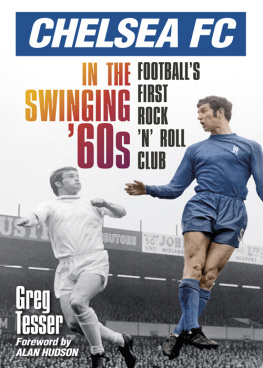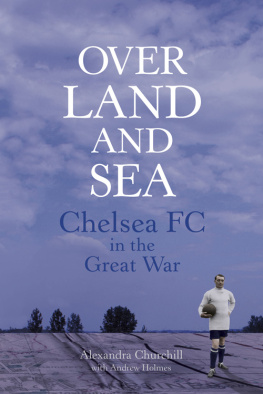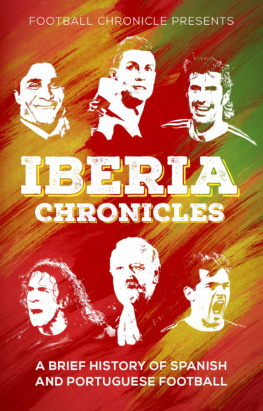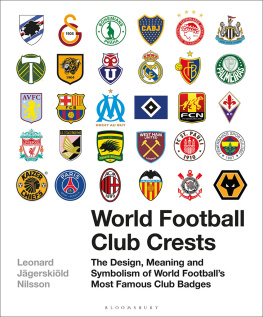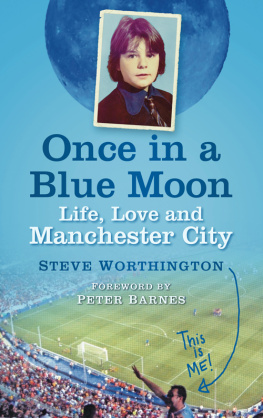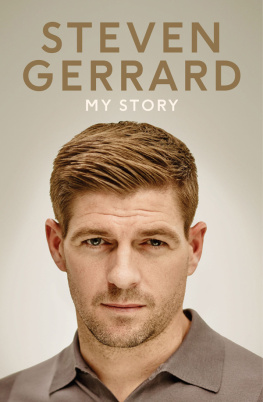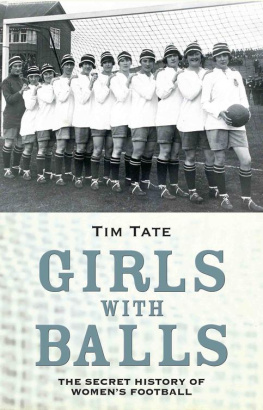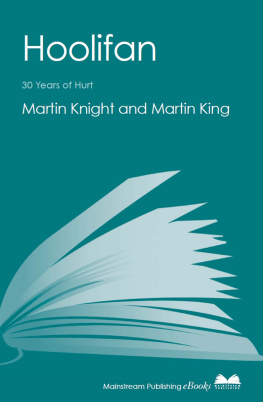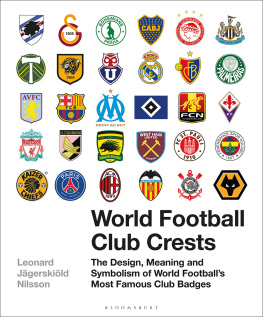Contents
There are far too many people to thank, but pride-of-place must go to former Chelsea star Alan Hudson for his brilliant foreward. These days, Huddys skills with the pen match his once-famed artistry with a football.
Another handshake must go to photogapher Jeremy Fletcher, whose iconic photographs are featured widely in the book. I first met Jeremy in 1964, and, even though he now lives in Australia, his support during the production of the book has proved invaluable. Another super snapper to thank is Chelsea fan Terry ONeill, whose ideas so often bore fruit more than forty years ago. Yet another photographer, Richard Sainsbury of Delmar Studios in Taunton, proved to be a wizard with his scanner. And finally, a special thank you to my wife, Gianna, for her support and her regular supply of tea and sandwiches!
How the times go flying by. The one thing that I have found is that a lot of the people who will be mentioned in Gregs book will not have the same memories that I hold. Age is our biggest opponent when it comes to something like this, and then there are those who never enjoyed such times like we did at Chelsea.
I first met Greg Tesser when agents were scarce; I remember that George Best had Ken Stanley and I had Ken Adam, all pretty new to the job of handling such players. The only difference with Greg and Peter Osgood was that Greg was not only a massive Chelsea fan, but that his client was his hero. Osgood was exactly what he was to the majority of the Chelsea Shed; the King of Stamford Bridge, just as Charlie Cooke was the prince and I was the upcoming young pretender. My respect for these two players went beyond a love for playing the game.
It was, in those days, magical; just like The Logical Song by Supertramp. But then the magic was lost as the game was streamlined and made more logical. For me, however, it remained magical (and always will) as the 1960s led into the 70s the last incredible period for our game. The Bosman Ruling, which came into being in 1995, finally allowed freedom of contract, but sadly came along far too late for players of our generation.
And after my first long chat with Greg, this is exactly what he is endeavouring to recapture; if it is not magical then it is ordinary, and today there is far too much of that from English players. The likes of Osgood are now a distant memory, which is one of the reasons I took up writing for a hobby.
I wish Greg endless success with his book, knowing that he will capture those magical times. Once it is in print it is something that can never be taken away from you, even if only one copy is published and one person reads it, and hopefully when reading it that person manages to grab just a little of the glitter and gold of those days; glitter and gold that Im afraid is missing today.
Alan Hudson
Former Chelsea, Stoke City, Arsenal & England star
Its different below in the dressing room before a match. Theres no cool beer or Kings Road dollies, none of the euphoria of up-top an excitement, sure, but one thats heavy with anxiety; a religious dedication to the rituals being performed. An implicit notion that a life or two may be changed before the day is out.
The floor, a mass of shin pads, shirts, shorts and socks; tracksuits and towels and bottles of oil; tins of Vaseline and packets of studs; hammers and pliers; laces and boots; scissors; bandages and strips of Elastoplast and tufts of cotton, and small grey balls of spat-out gum.
And, tucked unobtrusively in some quiet corner, sterilising in a stainless steel basin of blue alcohol, the tray of surgical instruments, razor sharp scalpels and evil-looking sutures already threaded with brown stitching gut, awesome tools that ring distant alarm bells in the mind and impose a subtle sobriety on the proceedings.
The air smelling hot and linimenty, and everybody milling round like nervous bulls. White-coated helpers rubbing down muscles and studding boots, while the team manager circulates quietly with last-minute words of encouragement and caution. The room full of naked bodies with massively developed calves and thighs topped with chest cages and arms that look fragile in comparison, bending and stretching and windmilling in well-practised warm-ups. Grown men, whose behaviour in the half-hour or so before the kick-off is a gross caricature of their norm. Extroverts clowning away time, while the introverted retreat to private worlds behind walls of trivia, rituals of boot-lacing and nail-cutting. But the tension is getting through to all you can be sure. You can tell by the forced laughter that greets even the dullest remarks and by the constant procession to the John.
Yes, this is how it is all right. Your guts like water, your thoughts racing on the edge of hallucination. Alone you sit amidst the jock-strapped torsos pulling jerseys over their heads and bandaging ankles, glad for the times when you trained to exhaustion. And heavy with guilt for all those other times when you did less than you might. There will be a reckoning. You know it. Not today perhaps, not tomorrow either. But you will pay. Remote, you sit in this bustling nervous community making an MGM production of trivial tasks on account you dont want time on your hands.
Yes, this is how it is, that feeling close to vomit just before the off. Your skull is aching like its ready to burst. The tension is almost tangible, thick in the air, and everything is getting quieter, conversations just above a whisper, but with the referees buzzer, a sudden babble of voices, each wishing the other well, bodies intertwining in ritual handshaking. Some have a soft moist feel, while others offer only their fingers. And some take a firm masculine grip, perhaps clasping your forearm as well, like it should be, you think, and you feel a bit better for it.
Soon you are lined up at the door, everybody marking time, some jostling neurotically for a particular position, slaves to their superstitions, studs nervously clicking on the floor. But finally the door opens and you are in the tunnel, marking time again, your studs clattering on the concrete and your opponents lined up similarly a couple of yards away. You stand there fidgeting, nowhere to put your eyes, never looking at them, not for any length of time anyway. But you can see your opponents from their waist down and your stomach almost turns at the sight of those massive hairy legs, rock-hard columns of muscle that set you thinking that these geezers can probably go like gazelles. And you think of the irony of it all. Maybe 60,000 excited fans up top that would give anything to be down here in your place.
And you? Right now you wouldnt mind being up there, with the cool beer and the Kings Road dollies, immersed in the collective euphoria. Yet you know that when the concrete yields to turf, when your studs cease their chatter, and you start to swing the ball about in those long looping practice passes, it will start to be all right again and the game will take over.
Charlie Cooke, Chelseas Scotland International winger of the 1960s and early 70s penned this (in collaboration with Greg Tesser) in January 1971 in the Club Secretarys office at Stamford Bridge. It was published on 15 March 1971 in Vogue.
ONE
At the tender age of seven years and seven months I fell in love. Not some kind of pre-pubescent romance with a girl, but with a football club Chelsea Football Club.
This was many years before I started to knock back chardonnay or Barolo al fresco with all the aesthetes and beautiful people under a gaudy Martini sunshade at a table of an ultra-modish Kings Road eatery in the company of Charlie Cooke, or munch shellfish in his cosy Mini or visit Scottish international Stewart Houston in hospital with the King of Stamford Bridge himself, Peter Osgood.

